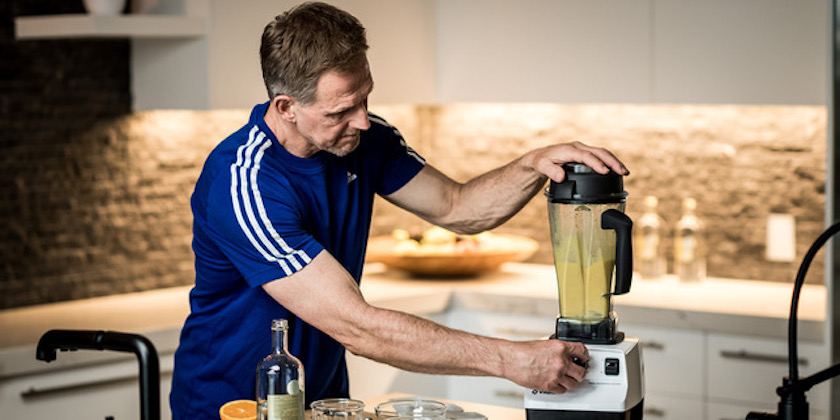
The following article was written by Gary Roberts, NHL veteran forward who now owns and operates Gary Roberts Training
Roberts will contribute more information to Neutral Zone readers. Click here to access Gary’s at-home training programs delivered on the Gary Roberts training app. Neutral Zone readers earn 10% discount when applying Neutral Zone promo code NZ10 at checkout. Athlete’s living in America should note, the Canadian dollar is 40 cents to the American dollar! This means close to 50% savings!!!
Inflammation is the natural response to injury or illness that allows us to fight off unwanted substances in the body and speed up the healing process. During exercise and high levels of stress, there are acute levels of inflammation, which is not necessarily a bad thing, the issue is when inflammation becomes chronic. Exercise creates an increased level of stress on the body, which is needed in order to build muscle, increase strength, increase stamina, and improve work capacity. In order to improve in these areas, it comes down to optimal recovery and letting the increased inflammation subside.
It is important to include anti-inflammatory foods in order to decrease the chances of increased inflammation leading to chronic inflammation or injury with high output exercise.
Increase anti-inflammatory foods
ï Omega 3’s including fatty fish (salmon, sardines, trout, etc.), walnuts, chia seeds, flax seeds hemp seeds, etc.
ï Ginger (tea, juices, salad dressings etc.)
ï Turmeric- Active ingredient in turmeric is called curcumin and can be used in a supplement form for better results.
ï Pineapple- In particular the core because it contains bromelain (anti-inflammatory enzyme)
ï Avocado
ï Green leafy vegetables (spinach, kale, collards, swiss chard, etc.)
ï Nuts and seeds
ï Bone broth
ï Coconut oil
Increase foods high in antioxidants (Bioflavonoids, Quercetin, Vitamin A, C, E and Selenium)
ï Foods rich in Vitamin C and Bioflavonoids: Tomatoes, peppers, citrus fruits, strawberries, kiwis, dark leafy greens, broccoli, mangoes, goji berries, etc.
ï Foods rich in quercetin: Onions, capers, cranberries, plums, blueberries, apples, red leaf lettuce, kale etc.
ï Foods rich in Vitamin A: Sweet potatoes, squash, carrots, dark leafy greens (spinach, kale, collard, etc.), cantaloupe, peppers, etc.
ï Foods rich in Vitamin E: Sunflower seeds, dark leafy greens (spinach, swiss chard, etc.), almonds, avocadoes etc.
ï Foods rich in Selenium: Tuna, pork, chicken, eggs, and nuts (brazil nuts).
Increase fibre intake
ï Fruits and vegetables
ï Whole grains
ï Nuts and seeds
ï Flax seeds/oil
ï Psyllium husk
Increase plant-based calcium intake
ï Dark leafy greens (kale, collard greens, Swiss chard)
ï Artichokes
ï Bean sprouts
ï Chickpeas
ï Sesame seeds/tahini
ï Chia seeds
ï Almonds
ï Brown rice
ï Quinoa
ï Blackstrap molasses.
Focus on a real whole foods diet and increase water consumption to decrease overall inflammation.
ANTI-INFLAMMATORY SHAKE
Ingredients:
½ banana
1 navel orange
½ tsp. turmeric
¼ tsp. cinnamon
½ tsp. ginger
1 tbsp. ground flax
1 cup water or coconut water
1 scoop vanilla protein powder
Throw all ingredients into your blender and blend very well until creamy. Pour into glasses and enjoy!
